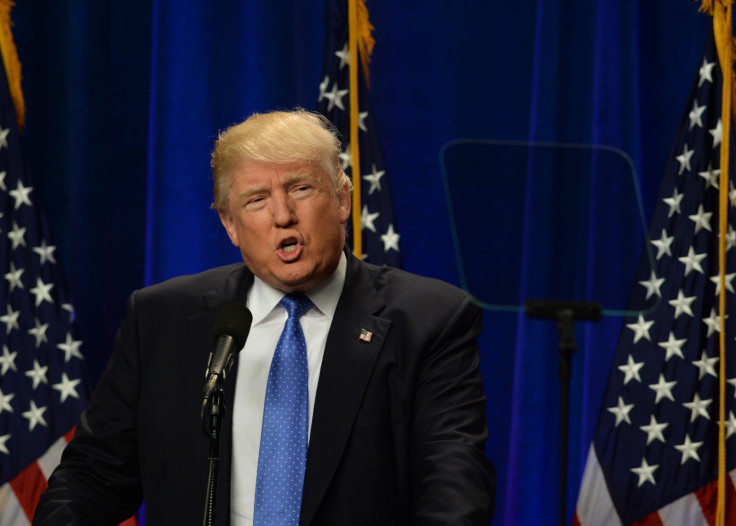Donald Trump won't automatically come to aid of Nato allies under attack if he is president
Countries may have to 'fulfil their obligations' first and foot the defence bill warned Trump.
Donald Trump has suggested that with him as president, the US would no longer automatically come to the aid of a Nato ally under attack if he becomes president.
Trump said the US would step up only after considering whether nations needing protection "have fulfilled their obligations to us," he told the New York Times.
All 28 Nato nations have signed a mutual defence treaty vowing to come to the aid of any member that is attacked.
Trump was asked specifically in the interview if the US would protect the smaller Baltic states if they were attacked by Russia.
"If they fulfil their obligations to us, the answer is yes," he responded.
He reiterated a long-standing position that he would pressure allies to shoulder a bigger share of defence costs and would consider breaking longstanding treaties not sufficiently favourable to the US.
Trump said he would "prefer to be able to continue" existing pacts — but not if he believed allies were taking advantage of the US.

Trump's campaign manager Paul Manafort insisted to Mother Jones that the GOP presidential candidate had been misquoted — something he said the Times "does a lot."
"Did the Times get it wrong?" Mother Jones Washington Bureau Chief David Corn asked Manafort.
"The Times got it wrong," said Manafort.
But reporter Maggie Haberman said Manafort wasn't at the interview and a transcript would be available soon.
@DavidCornDC he wasn't in the interview and unlikely he had time to catch up to it before convention program began. Transcript soon.
— Maggie Haberman (@maggieNYT) July 21, 2016
Trump also suggested he would close US bases abroad. "If we decide we have to defend the United States, we can always deploy" from American soil, "and it will be a lot less expensive," he noted.
The 45-minute interview with the newspaper presented a preview of Trump's foreign policy strategy stressing far less expenditure and involvement abroad that he is expected to expound on in his speech to the Republican National Convention.
Trump also said that if he were elected president, he wouldn't pressure authoritarian allies like Turkey over human rights or civil liberties abuses. The US has to "fix our own mess" first before "lecturing" others, he said.
"Look at what is happening in our country," he told the Times. "How are we going to lecture when people are shooting policemen in cold blood?"
He added: "When the world sees how bad the United States is and we start talking about civil liberties, I don't think we are a very good messenger."
Good news: Trump says if Russia invades NATO allies, he'll consider doing nothing. More good news: Trump says Erdogan is doing a great job.
— Ben Shapiro (@benshapiro) July 21, 2016
© Copyright IBTimes 2025. All rights reserved.






















